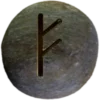Last Updated on November 29, 2024
Table of Contents


Sigurd (pronounced “SEE-gurd”) stands among the most celebrated heroes, renowned for slaying the dragon Fáfnir (pronounced “FAHV-neer”). Also known as Siegfried in Germanic tales, Sigurd’s story unfolds in the Völsunga Saga and the Poetic Edda. These texts highlight his courage, cunning, and tragic fate.
Born into the Völsung lineage, Sigurd carried the legacy of a family destined for greatness. His foster father, Regin (pronounced “REY-gin”), guided him in his youth. Regin also urged him to slay Fáfnir, who hoarded a cursed treasure. Sigurd forged his sword, Gram (pronounced “GRAHM”), which shattered any other blade. Armed with this sword, he ambushed Fáfnir and pierced the dragon’s heart.
After slaying the dragon, Sigurd tasted its blood, gaining the ability to understand birds. This skill saved him from Regin’s betrayal. He also retrieved the cursed treasure, including a magical ring tied to a tragic future.
Sigurd’s love for Brynhildr (pronounced “BRYN-hil-dur”), a valkyrie, adds depth to his tale. Misunderstandings, betrayal, and oaths lead to heartbreak and conflict. His marriage to Gudrun (pronounced “GOOTH-roon”) brings more complications, setting the stage for his untimely death.
His life captures themes of heroism, loyalty, and the consequences of greed. The Völsunga Saga immortalizes his deeds, ensuring his place among legendary heroes.
Elder Futhark Runes Associated with Sigurd
The Tiwaz rune (pronounced “TEE-wahz”) symbolizes courage and justice, reflecting Sigurd’s bravery against Fáfnir. The Fehu rune (pronounced “FAY-hoo”) represents wealth and power, tying to the cursed treasure he claimed. ![]()
Importance in Asatru
For modern Asatruar, Sigurd inspires strength, honor, and determination in modern practice. His triumphs and tragedies teach resilience and the weight of choices. His legacy motivates adherents to face challenges with courage and wisdom.


